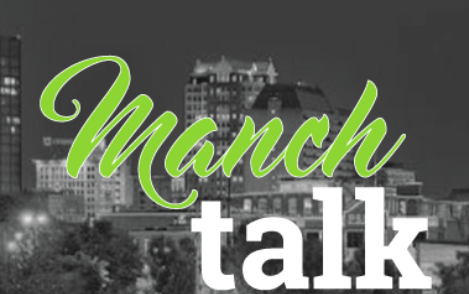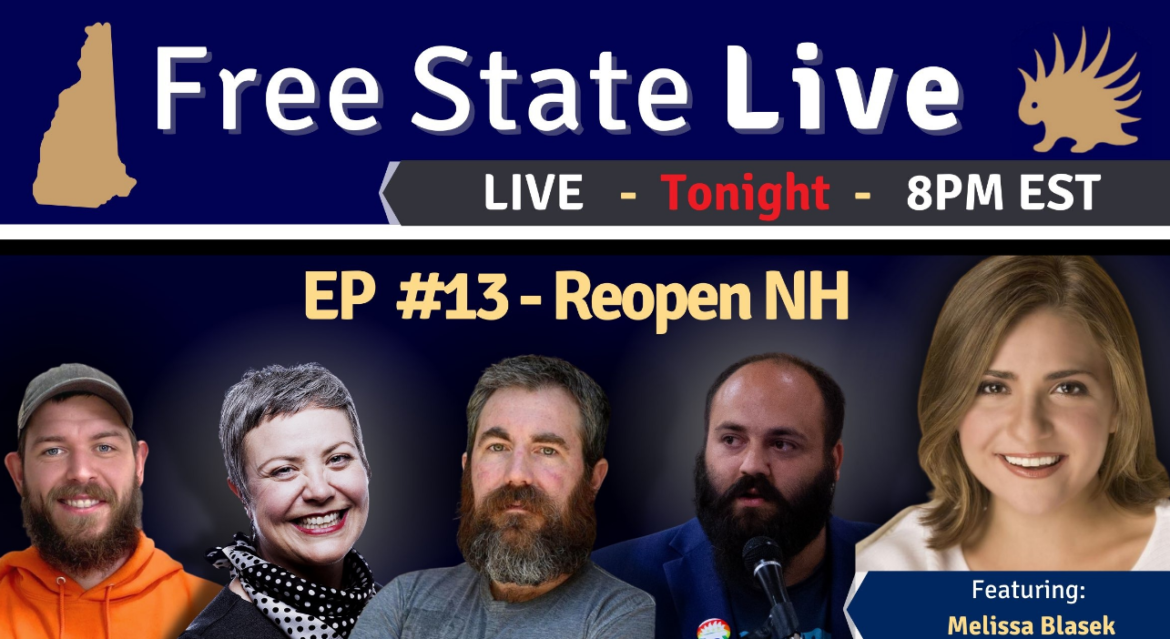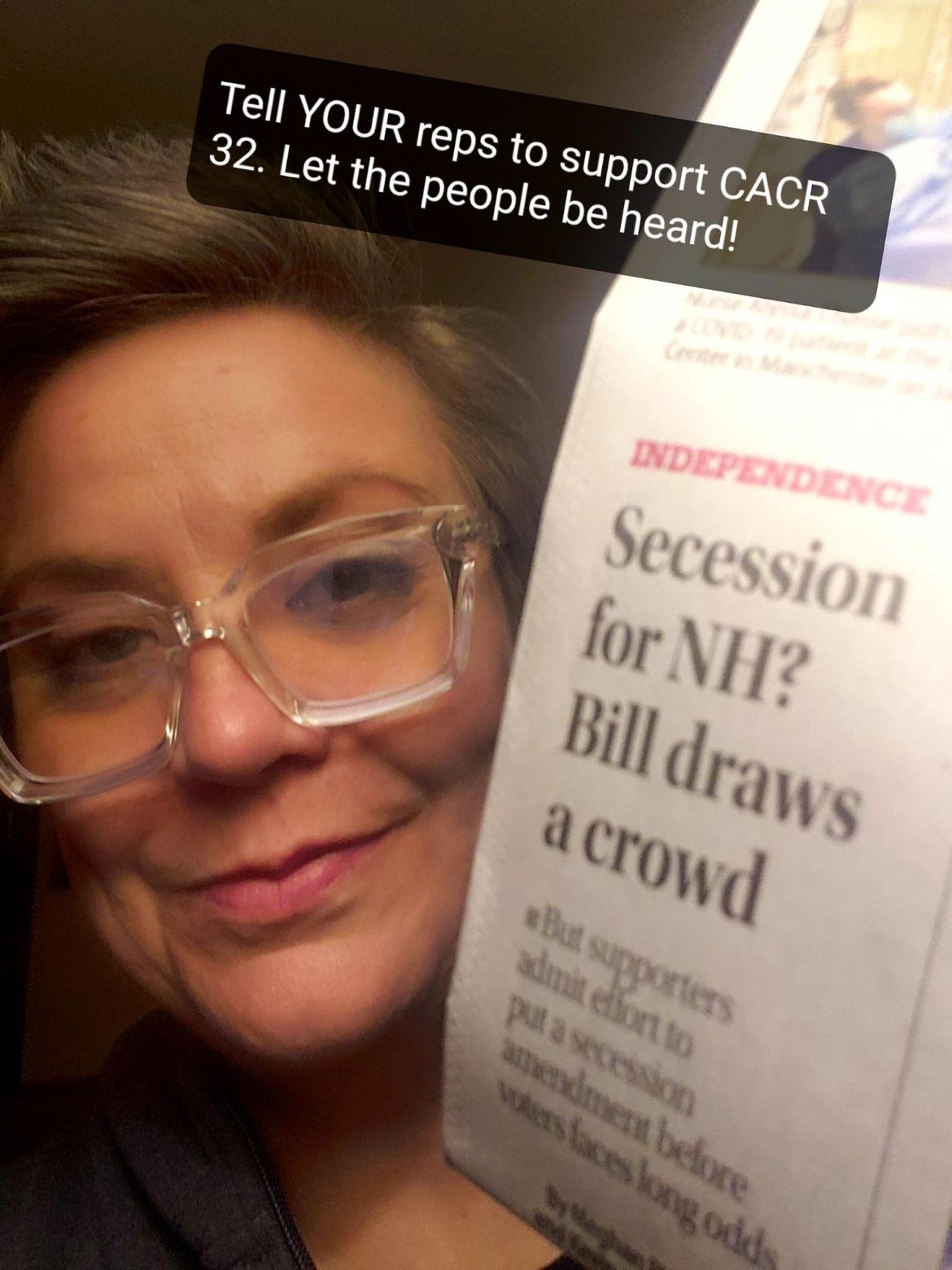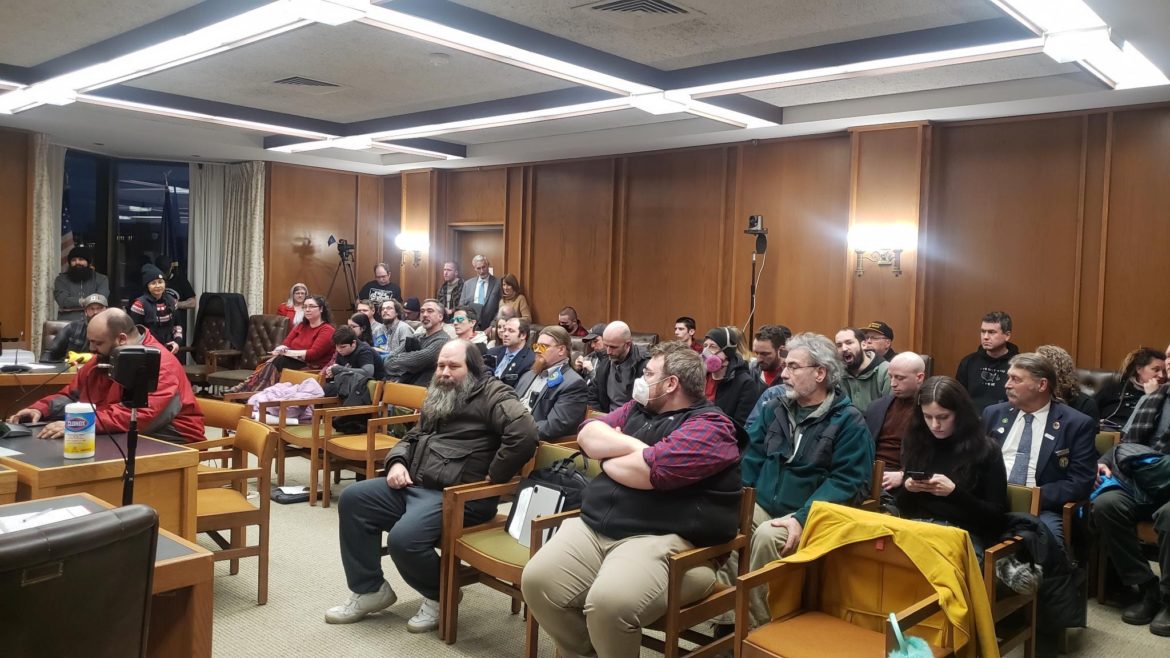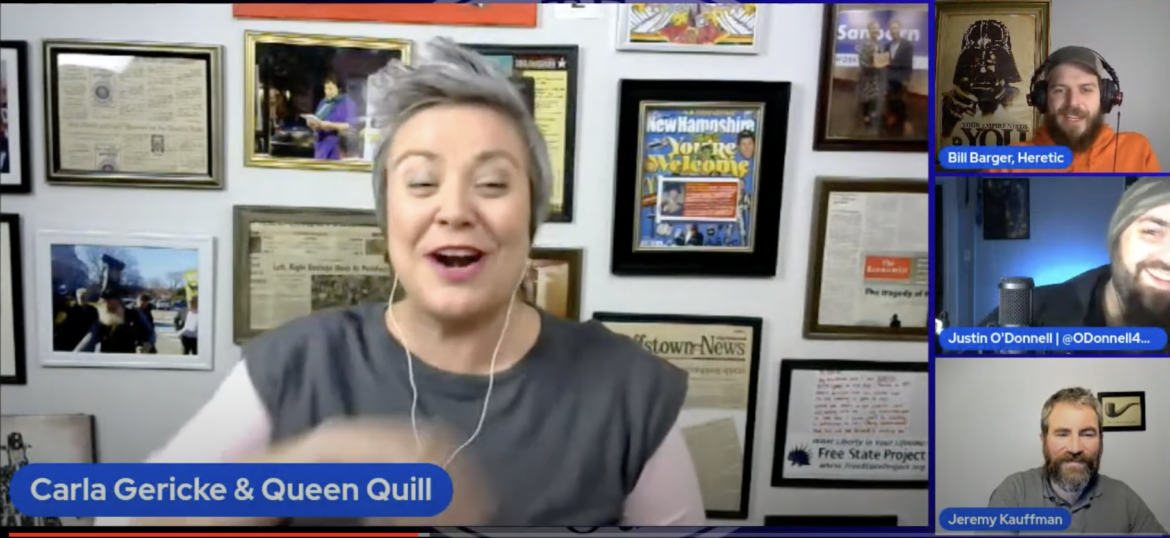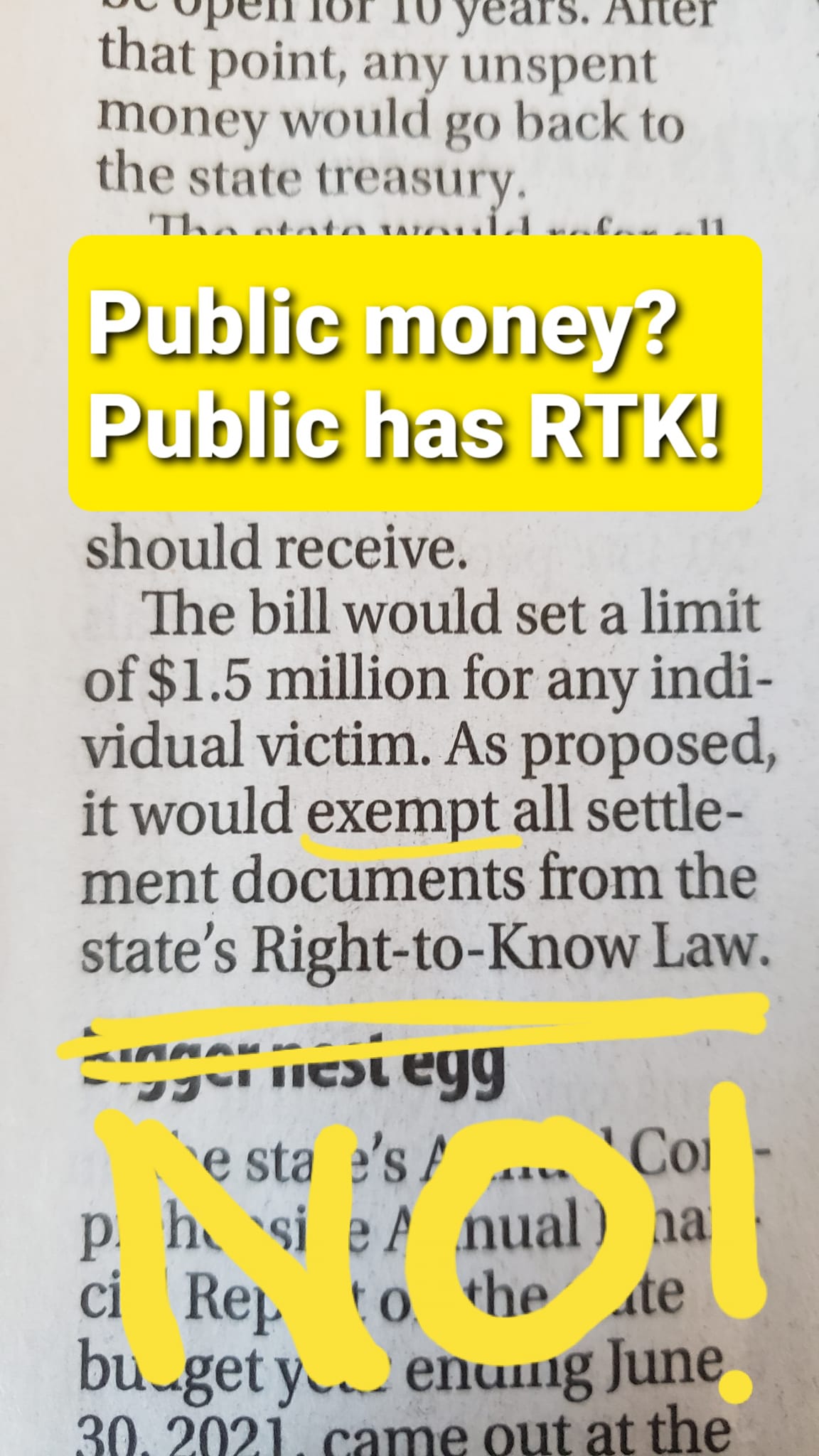Carla Gericke
So… THIS happened! Meet Obi, the latest addition to Castle Quill! Louis and I are deeply grateful to Donna BuMps Priolo for choosing us as Obi’s forever home. We promise to take insanely good care of her!
Ms. Nellie is 15 now, and she’s still doing her best but she is in her sunset phase. She’s hoarse this morning from all yesterday’s antics, and is still curled in a “doggie donut,” fast asleep, right now.
The Universe moves in mysterious ways, but just like Nellie came into our lives at the right time through a close friend (I’d just lost my pregnancy during my 2nd trimester), I believe Obi is here to make the transition with Nellie less painful when the times comes.
But ENOUGH depro-shit! Look! PUPPY!!!
PS: The photo is LITERALLY the only one I’ve managed to get that’s SORTA in focus so far. Prepare for cuteness overload!
Video thread:
— Libertarian Party NH (@LPNH) January 21, 2022
Free Stater and libertarian activist @CarlaGericke was on ? in her testimony on New Hampshire Independence (CACR32)
“I am testifying today in support of CACR32 because it should always be in the hands of the people, how they are governed.” pic.twitter.com/mu90Bsd82z
Honorable Committee Members,
Thank you for your time today. My name is Carla Gericke, but my friends call me Queen Quill. I am an immigrant to America and became a US citizen in 2000, having to take a citizen’s test, where, you know, New Americans learn about the Constitution and the enumerated things the federal government is supposed to be limited to doing, which isn’t supposed to be much.
I am an author, activist, and attorney. I am a political refugee to New Hampshire, moving here in 2008 as part of the Free State Project. I was the Republican nominee for NH Senate in District 20, and received 45% of the vote in the last election. I’ll be running again. [DONATE!]
I am a proud Free Stater, and, like many, but not all Free Staters, I support NH Independence.
I am testifying today in SUPPORT of CACR 32 because it should always be in the hands of the people how they are governed.
CACR 32 simply states: “Are you in favor of amending the first part of the constitution by inserting after article 7 a new article to read as follows:
The federal government has failed us. It no longer follows the Constitution. The federal government ushers in unconstitutional wars. The federal government hurts our fellow Granite Staters with its War on Drugs, which just makes bad personal choices, worse. The federal government, colluding with the Federal Reserve, makes us all poorer due to inflation caused by money printing. Face it, Granite Staters are being abused by DC.
What do we advise victims to do when they are being abused?
TO LEAVE.
Which means, we have the right to ask for a DIVORCE. This is all today’s proposed amendment is: an opportunity–a DEMOCRATIC OPPORTUNITY–for Granite Staters to decide whether our relationship with the federal government is worth salvaging.
I say it is NOT, and everyone should know, we would ALL be better off if we went our separate ways.
What are we taught about abusers?
They will tell you, you can never leave.
They will tell you they will change.
They will tell you it’s your fault.
Abusers, and the federal government, are gaslighting liars who cannot be trusted. We all know the definition of insanity is doing the same thing over and over, and it is YOUR duty to at least create an OPPORTUNITY for Granite Staters to DECIDE our own destinies.
As an independent nation state, NH will be prosperous and peaceful, along the lines of small, successful countries like Lichtenstein, Luxembourg, or Switzerland. We would have four times the size of Iceland’s population. We would easily be able to work with our neighbors to trade, much like the countries do in the Schengen Area in Europe. Many American retirees already receive their social security pensions in foreign countries like Mexico.
No future challenge related to independence is insurmountable: Where there is a will, there is a way.
Let’s see if there is a WILL.
There are many compelling reasons to support a #NATIONALDIVORCE and I encourage folks who are curious to visit the Foundation for NH Independence’s website. I serve on this federally recognized 501c3 educational nonprofit’s board and at nhindependence.org you will find for hundreds of reasons why YOU should support a free and independent New Hampshire, not least of which we would all be SIGNIFICANTLY wealthier, probably on average about $25,000, if we could keep our hard earned federal income taxes.
Today, your ONLY duty is to democracy, which every single one of you claims to support. YOU need to vote in favor of this OPPORTUNITY because it is NOT up to you. It is up to individual Granite Staters.
We are called the live free or die state. When we become independent, we will also be the Live Free and THRIVE state. Afford us the opportunity to TRY.
Thank you for your time, I’d be happy to answer questions.
Tammy and I don’t miss a beat and cover a lot of ground this week, including discussing the Honorable JR Hoell’s DCYF case, street crime in Manchester, and the book “San Fransicko: How Progressives Ruin Cities”. We also discuss this week’s upcoming Right-to-Know bills to foster open and transparent government, and CACR 32, the independence bill being heard on Thursday.
This was today’s lunch, with brown butter sage mushrooms, Bardo Farm pork chops, sweet potato, and roasted broccoli with red onions.I only have one #freedomnomnom meal to present because I was traveling.
While in Miami, I enjoyed ceviche, a raw bar with oysters and shrimp, Argentinian rare steak, halibut, and more! The “more” includes GOOSEBERRIES, something I have never encountered at a breakfast buffet before. #fancy
I was confronted with so many (MANY!!!) tempting delights, and am proud of myself for sticking to healthy choices. Other than a bite of a handmade empanada and a slice of bread under my breakfast avo toast with poached eggs & Hollandaise, I did good.
Over the years, I have learned it is better to stick to my bright lines than to have regrets. This is when you know it’s a lifestyle, not a diet.
Since I didn’t realize how much I missed avo toast until I had it again, I’m going to start making my own bread-free version called “Avo Most.” ![]()
If YOU want to change your life and become metabolically healthy, follow me on social and check out #freedomnomnom for years of meals to help inspire YOU! Change is possible, you just have to choose YOU.
#ketokitchen #ketolife #keto #paleo #ancestral #ancestralliving
Lawsuits are pending regarding past abuses against children at the Youth Development in Manchester (notice the nifty re-branding to remove “Sununu” from the institution’s name).
The Dems bill HB 1677 wants to allocate $100 MILLION dollars, and wants settlements to be exempt from our Right-to-Know laws. This sounds suspiciously like a sludge fund to me…
If you are spending PUBLIC money, the PUBLIC has a Right-to-Know. Period.
Hearing is on Thursday, same day as several other RTK bills, as well as NH’s first independence bill, CACR 32.
Hope to see many Free Staters coming out to speak about these issues. We are fortunate to live in a state where the legislature listens. Victory often goes to those who show up… Be there. Thanks!
